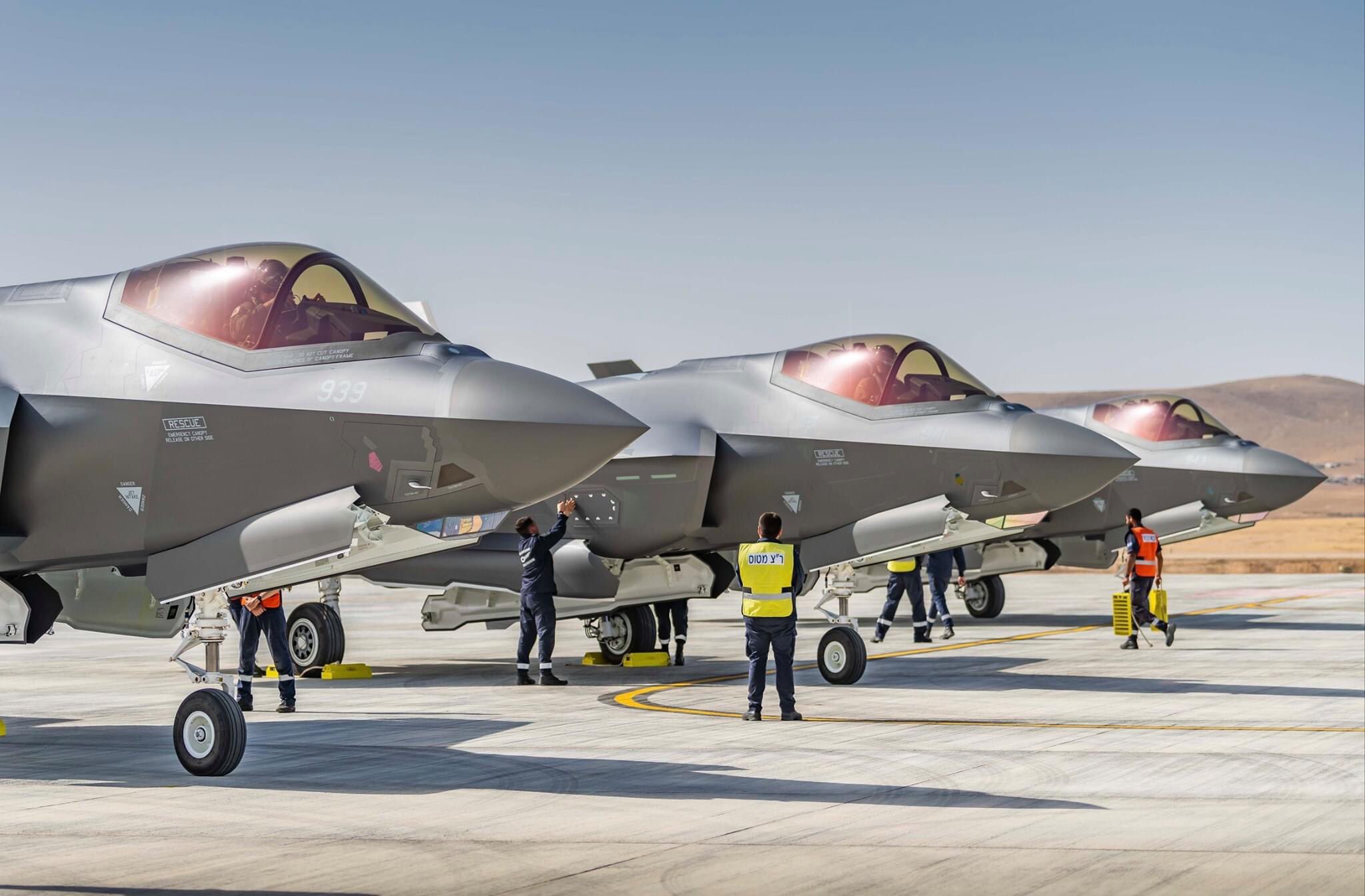Israel’s Defense Ministry officially inked a long-awaited agreement with the United States on Tuesday, June 4, to acquire a third squadron of F-35 fighter jets. This $3 billion deal includes the procurement of 25 advanced stealth fighters from Lockheed Martin.
The new letter of agreement, signed and executed by an Israeli delegation in the US, sets the stage for the delivery of these state-of-the-art aircraft beginning in 2028.
The delivery schedule outlines the arrival of three to five jets per year until the order is fulfilled. Upon completion, Israel’s F-35I fleet will expand to 75 aircraft. To date, Israel has received 39 of the original 50 F-35s ordered.
Funding for this acquisition is from the US military aid to Israel, underscoring the financial and strategic bond between the two nations.
The deal’s signing follows the resolution of a dispute between Defense Minister Yoav Gallant and Finance Minister Betzalel Smotrich, who had previously withheld approval pending a Knesset committee review of the defense budget.
The Israeli Ministry of Defense has signed an agreement with the U.S. government for the third squadron of the "Adir" (F-35) aircraft, which will be integrated into the Israel Defense Forces (IDF). pic.twitter.com/zKixtrgFwR
— Ministry of Defense (@Israel_MOD) June 4, 2024
In a statement issued following the agreement, Defense Minister Gallant emphasized the significance of the deal.
Gallant said: “The procurement of the third F-35 squadron reflects the strength of the strategic alliance between Israel and the United States. This capability has a significant impact on arenas both near and far. At a time when some of our adversaries aim to undermine our ties with our greatest ally, we only further strengthen our alliance. This sends a powerful message to our enemies across the region.”
In a brief statement, Lockheed Martin, the aircraft manufacturer, expressed its satisfaction with the Israeli government’s decision. “We are pleased by the Israeli government’s decision to procure 25 additional F-35s”.
The procurement is part of a broader initiative led by the Israeli Ministry of Defense and the Israel Defense Forces (IDF) to bolster national security capabilities in response to current and anticipated threats.
The Defense Ministry highlighted that, under the agreement, Lockheed Martin and engine manufacturer Pratt & Whitney pledged to involve Israeli defense industries in the production of aircraft components.
This move is seen as a critical step in maintaining Israel’s qualitative military edge and reinforcing its readiness to address evolving regional security challenges.
Israel’s F-35 Fleet Continues To Evolve
This deal enhances the Israeli Air Force’s fleet to 75 F-35I aircraft, reinforcing its position as one of the leading operators of state-of-the-art fighter jets.
Israel was the first country to select the F-35 through the US government’s Foreign Military Sales (FMS) process, signing a Letter of Agreement in October 2010.
The first two F-35I jets arrived in December 2016 and were operational within a year. Israel subsequently became the first nation to use the aircraft in combat, revealing their use in bombing raids within months of their deployment.
Israel is one of the few countries allowed to modify the US-made fifth-generation fighter aircraft. Initially, the US refused to allow Israeli modifications to the F-35.
However, a compromise was reached: nothing inside the aircraft was changed, and the Israelis were allowed to add capabilities to the existing infrastructure.
The Israeli F-35s are modified in these main areas: command, control, communications, computers, and intelligence (C4I), electronic warfare, and weapons integration.

These jets have been extensively used by the Israeli military in the ongoing military operations against Hamas.
In December 2023, Pentagon acquisition head Bill LaPlante disclosed the exceptional combat performance of these advanced aircraft in the conflict.
During a House Armed Services tactical air and ground forces subcommittee hearing, he noted that the US quickly delivered F-35 mission data files—crucial to the aircraft’s operation—to Israel. Known as the “brains” of the jet, these mission data files include a wealth of threat-related information.
In addition, referencing high mission capability rates in the Middle East, F-35 Program Executive Officer Lt. Gen. Michael Schmidt lauded the exceptional performance of Israel’s F-35 fleet in the conflict with Hamas during the hearing.
Schmidt noted that in the wake of the war, new capabilities were rapidly added to the F-35 aircraft. He stressed ongoing efforts to boost their efficiency.
Further, LaPlante mentioned a significant increase in sustainment operations in Israel to ensure fleet readiness through improved maintenance support. He reported that 35 of the 39 F-35As in the Israeli Air Force surpassed combat performance expectations.
Overall, Israel’s F-35 fleet continues to evolve, with ongoing efforts to improve efficiency and sustainment operations to maximize readiness.
- Contact the author at ashishmichel(at)gmail.com
- Follow EurAsian Times on Google News